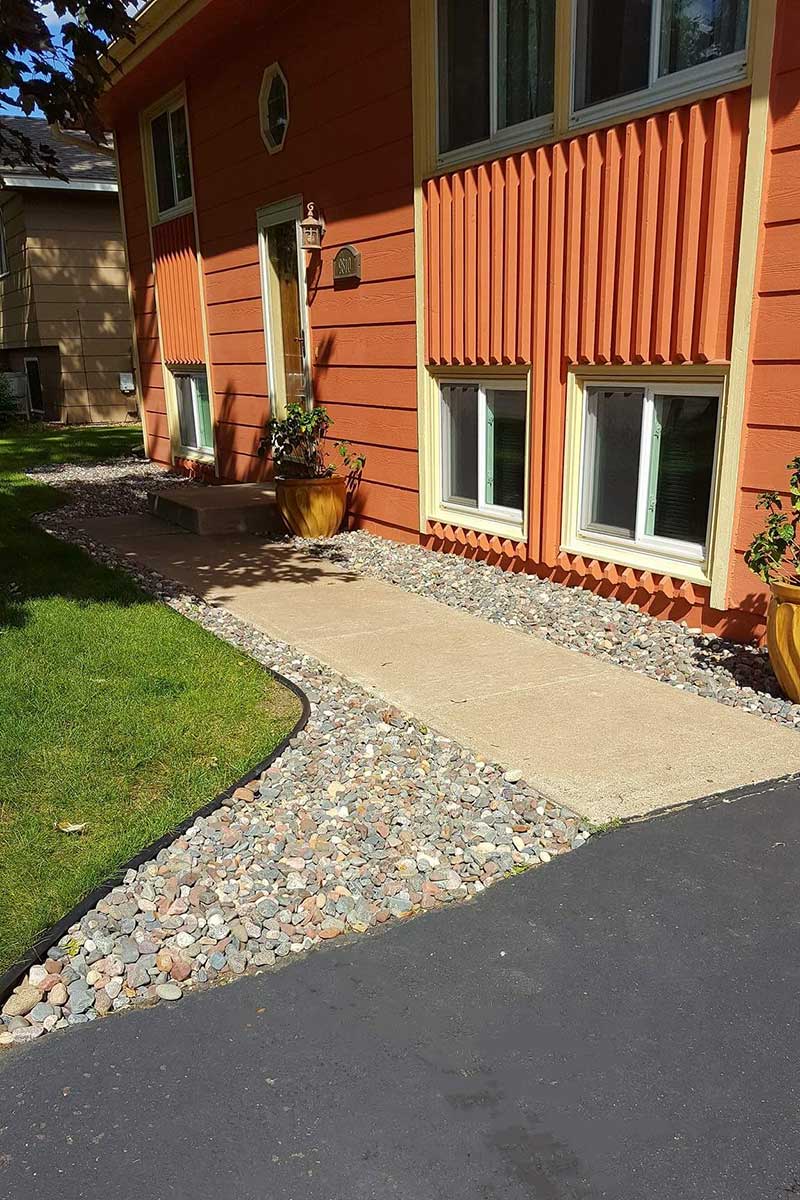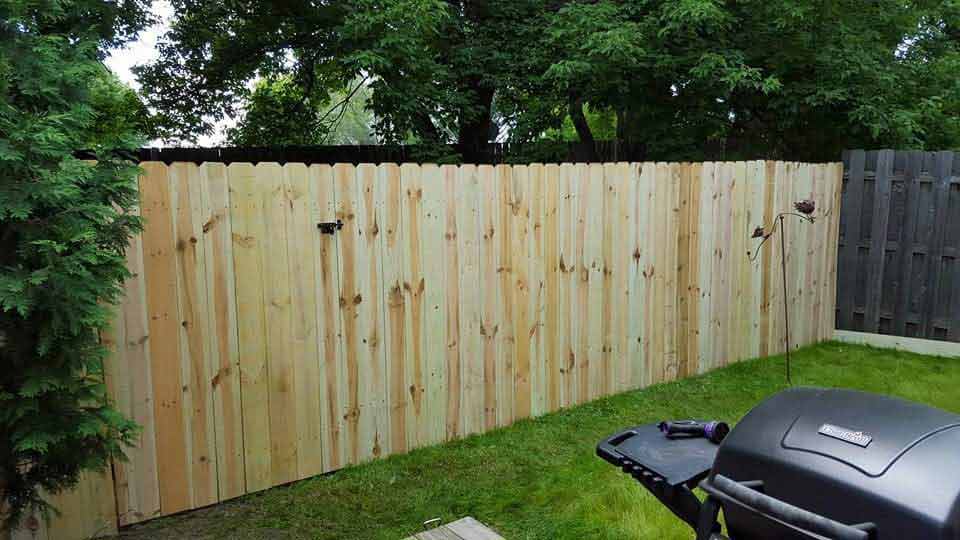

Limestone, quartz, granite, and river rock are all options when you’re considering rock. Rock is a decorative gravel that can be anywhere from the size of a pea up to the size of a golf ball. Large rocks are also incorporated into landscape design to serve as focal points.
When you’re considering what type of rock to choose from you have a variety of options. Limestone is one of the most attractive landscaping rocks. It’s durable and slip resistant. River rock consists of small rock fragments and is available in different sizes from 1/8 of an inch to 1/4 of an inch and as big as 1 ¼ inches. River rock colors are translucent, white, beige, yellow, and gray. Quartz gravel is a beautiful, long lasting translucent rock that’s available in purple, rose, and pink. Quartz has a smooth surface and reflects light. Granite mulch is a hard, rough rock, that comes in shades of gray, red, white, and black.
Shredded wood chips make for an aesthetically pleasing and functional mulch. They come in various colors including natural, red, black, brown, and gold. We lay down a fabric barrier to eliminate weed growth and cover it with your choice of mulch.
Some benefits of mulch include:
Mulch colored with vegetable dyes add contrast and interest to gardens and landscapes. Expect the color to last for two to three years depending on how much direct sun they receive. Colored mulches also tend to have finer textures which helps them mat together and stay in place on slopes.



Landscape edging is a barrier inserted between your grass and garden beds. Popular edging materials include brick, stone, concrete, plastic tubing, fencing, and tiles. Edging creates a clean look by emphasizing the line around your garden beds.
The heart of beautiful landscape design is lines. Flowing lines or straight lines, lines are what ties a landscaping project together. The edging starts with the landscape design blueprint. A lot of landscapers are not trained or have no formal education in landscape design and end up making an otherwise beautiful project look messy or confusing.
Aside from aesthetics, edging provides a very important functional element to your landscape design. Proper edging stops grass from growing into flower beds and other areas. It prevents flowering plants from growing into the lawn by providing a barrier for the roots. It keeps mulch in place. It keeps weeds from growing into flower beds. It functions as a visual barrier to keep people from walking in areas you’d rather they didn’t walk. Edging, when properly done, defines your landscape design, and can turn a messy, unorganized yard into a pleasing environment to spend time in.
Fences define the boarders of a property, provide privacy, and security. A fence can also give added protection for your property from harsh elements – the main benefit being a wind break and shade.
Decorative fences add personality to your landscape design and can be integrated into the overall theme. There’s an endless variety of fencing materials and designs you can choose for us to install. We will work with you to make sure you’re able to choose one that fits your style and serves its functional purpose.
Popular types of fencing:
Wood is probably the most popular type of fencing in America. It provides a superior amount of privacy for homeowners and there’s a variety of aesthetic options to choose from. The more lumber you need the more it will cost, but it’s entirely up to you and how much your budget will allow for.
Chain link fences do not add much privacy to your home but get the job done in a number of other ways. The biggest benefits are they’re cheap, durable, and require no maintenance. Shrubbery and other plants along the chain-link boarder can make the look more appealing and even add privacy.

